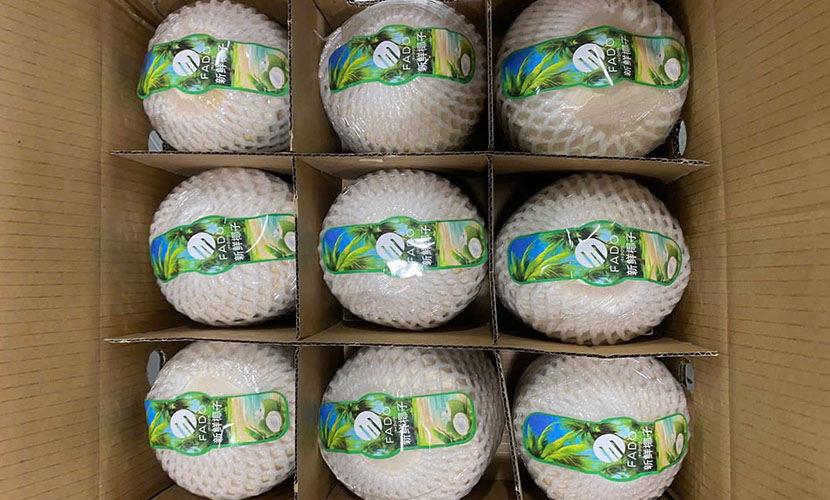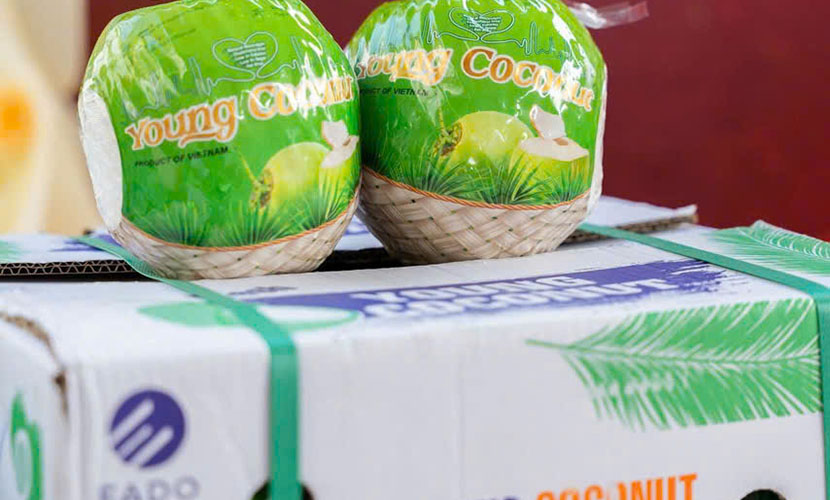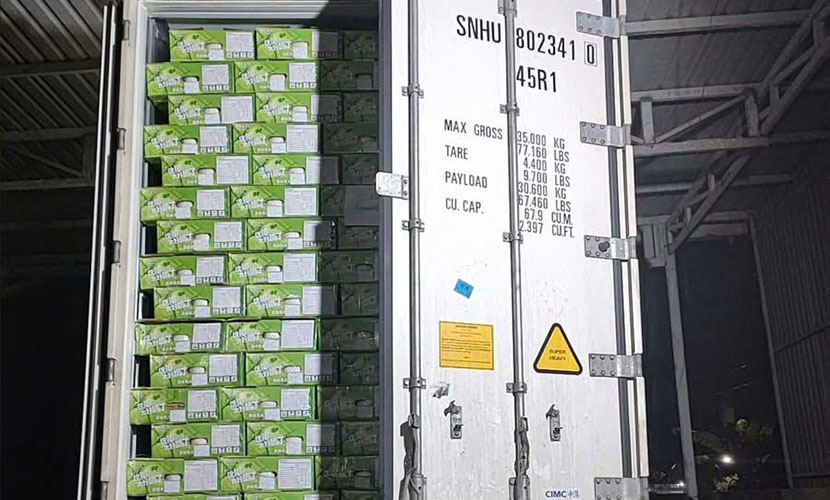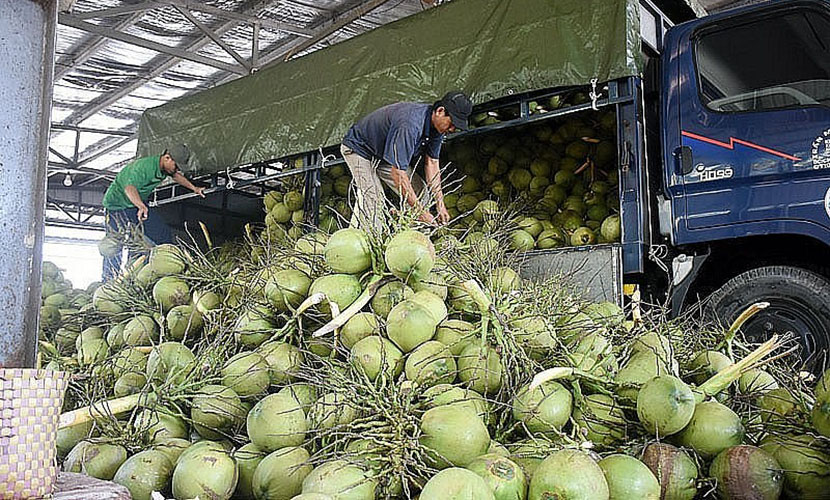
Due to the sharp increase in price, Vietnamese coconut exports reached $520 million in the first half of 2025. The industry is seeing a great opportunity to enhance its value chain and make a breakthrough on the global stage.
Notably, this growth occurred during the first two quarters of the year, which are typically not peak season. This is a highly positive signal for the industry. This sets a strong foundation for the coconut sector to aim for an annual export target of $1.15 billion in 2025. Achieving this would help solidify Vietnam’s position as the 4th largest coconut exporter in Asia-Pacific and 5th globally.

Vietnamese coconut
Alongside export growth, farm-gate coconut prices have also surged. While in 2023, the price per coconut was around VND 5,000, by Q3/2025 it had jumped to VND 15,000.
However, this price is still far below international market rates. In the United States, where a single fresh coconut can fetch up to VND 140,000. Meanwhile, this price has even been at VND 190,000 in Northern Europe.

Vietnamese coconut box
China remains a key market, accounting for 30–35% of Vietnamese coconut export value. A recent breakthrough came when China approved six new plantation area codes and packing facilities in An Giang province. As a result, it has been further opening the door for Vietnam’s fresh coconuts.
Nevertheless, while China consumes over 6 billion coconuts annually, Vietnam’s share of this fresh coconut market remains modest. On the other hand, Vietnam holds a significant advantage in the deep-processed coconut product segment.
Vietnam has produced deeply processed coconut products, such as coconut milk, coconut oil, and coconut-based cosmetics. They have received positive feedbacks from international consumers thanks to their distinctive aroma and natural sweetness. This is an avenue that maximizes the value of coconuts.

Vietnam’s coconut for export
Although market potential is enormous, international markets are becoming increasingly “demanding.” To succeed, Vietnamese coconut industry must overcome both internal and external challenges. Markets now demand strict compliance with technical barriers. Therefore Vietnam’s coconut products should be free from pesticide residues and meet international standards.
The trend toward sustainable consumption is also a major requirement. Organic certifications are becoming key competitive advantages, and traceability of product origin is now mandatory. Internally, raw material regions remain scattered and unregulated. Therefore it is difficult to ensure uniform supply in terms of variety and quality.

Loading Vietnamese coconut for export
Additionally, competition from strong regional rivals such as Thailand, Indonesia, and Malaysia poses a significant challenge. To seize opportunities and overcome challenges, a synchronized transformation is essential.
For farmers, the shift toward organic, environmentally friendly farming is critical. The key lies in forming cooperatives to develop large-scale plantation areas with official area codes. This will ensure a stable supply of Vietnam’s coconut for export.
For businesses, strong investment in modern processing technologies, automation, and artificial intelligence (AI) is no longer optional. Instead of exporting raw products, enterprises should focus on creating high-value-added products and build strong brands.

Vietnam’s coconut materials
From a policy perspective, the coconut industry needs a clear legal framework, especially regarding pesticide use. In addition, it is neccessary to build digital mapping system for cultivation areas to support traceability and quality management.
Vietnamese coconut sector stands at the threshold of becoming a billion-dollar agricultural economy. Strong collaboration between the State, enterprises, and farmers will be the key to unlocking its full potential. Accordingly, it helps enhance the value chain, and firmly establish Vietnam’s coconut industry on the global stage.
Vietnamese source: https://thuonghieusanpham.vn/dua-viet-tang-toc-huong-toi-nganh-ty-do-83097.html
